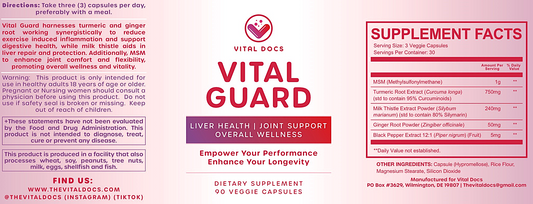Share
What Is Metabolic Health (And Why Every Woman Should Care in 2025)
If you’re dealing with cravings, stubborn weight, mood swings, or exhaustion no matter how “clean” you eat—your metabolic health might be the missing link. And no, it’s not just about your metabolism being “slow.”

What is metabolic health?
It’s your body’s ability to:
• Efficiently turn food into energy
• Keep blood sugar, blood pressure, and cholesterol in healthy ranges
• Maintain a stable weight and balanced hormones
When your metabolic system is functioning well, you feel energized, clear-headed, hormonally stable, and resilient. But when it’s off—everything suffers: energy, mood, digestion, weight, hormones, even your skin.
⸻
The 5 Clinical Markers of Metabolic Health:
To be classified as metabolically healthy, you need all of the following:
1. Fasting blood glucose under 100 mg/dL
2. Blood pressure under 120/80 mmHg
3. HDL (good cholesterol) above 50 mg/dL
4. Triglycerides under 150 mg/dL
5. Waist circumference under 35 inches (for women)
Over 80% of adults don’t meet these criteria—even if they appear healthy on the outside.
Why is this especially important for women?
Women’s bodies are more sensitive to:
• Hormonal fluctuations
• Stress-related blood sugar crashes
• Autoimmune triggers
• Under-eating and overtraining
Poor metabolic health can contribute to:
• PCOS and infertility
• Estrogen dominance or PMS
• Insulin resistance and inflammation
• Chronic fatigue, brain fog, and anxiety
• Midsection weight gain that doesn’t respond to diets
⸻
Signs Your Metabolic Health Might Be Off:
• Constant sugar or carb cravings
• Energy crashes after meals
• Belly fat, especially under stress
• Irregular periods or worsened PMS
• Acne, hair thinning, or skin flare-ups
• Waking up tired despite 8+ hours of sleep
⸻
What throws off your metabolism?
• Ultra-processed foods and added sugars
• Skipping meals or low-protein diets
• Poor sleep or inconsistent circadian rhythms
• Chronic stress (raises cortisol, which spikes blood sugar)
• Sedentary lifestyle (low muscle mass = lower metabolic efficiency)
• Hormonal birth control or environmental toxins (can impact insulin sensitivity)
⸻
Advanced Insight: Mitochondria & Inflammation
Your mitochondria (the “power plants” in your cells) are crucial for energy production. When they’re sluggish, everything slows down—including your metabolism.
And chronic inflammation (from poor gut health, stress, toxins) blocks healthy metabolic function, hormone signaling, and fat burning.
⸻
How to Support Metabolic Health Holistically
Lifestyle:
• Eat protein + fiber first at meals (slows glucose spikes)
• Walk 10–20 minutes after meals
• Get 7–9 hours of sleep nightly
• Practice nervous system regulation (breathwork, journaling)
• Do resistance training 2–3x/week to build lean muscle
Nutrition:
• Focus on whole foods (lean protein, healthy fats, fiber-rich carbs)
• Limit processed seed oils, artificial sweeteners, and refined grains
• Include blood sugar-stabilizing foods like cinnamon, vinegar, leafy greens, and omega-3s
⸻
Supplements That Help:
• Berberine – Balances blood sugar + insulin (like a natural metformin)
• Magnesium (glycinate or malate) – Supports energy, mood, and insulin sensitivity
• Apple cider vinegar – Helps lower blood sugar when taken before meals
• Inositol – Ideal for PCOS, egg quality, and insulin resistance
• CoQ10 & B vitamins – Boost mitochondrial energy production
⸻
Bottom Line:
Metabolic health is the foundation of hormonal balance, energy, fertility, mental clarity, and long-term vitality. This isn’t about dieting—this is about giving your body the tools it needs to thrive.
⸻
Want help getting started?
Follow @thevitaldocs for more women-first wellness education, gut support, and metabolic-friendly tools that actually work.





